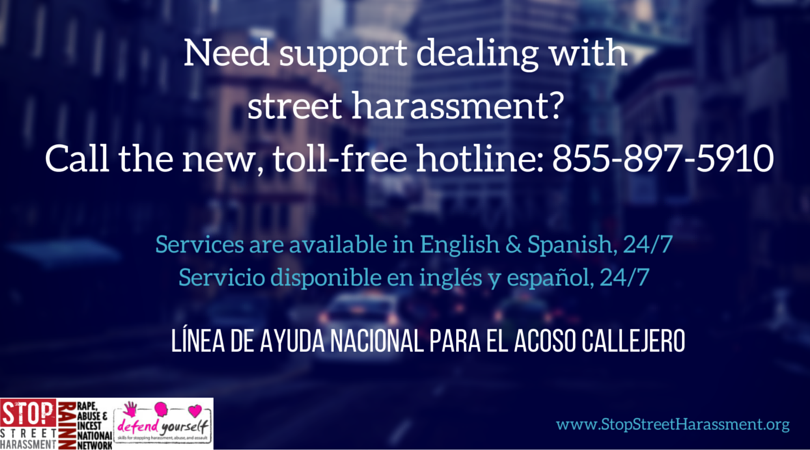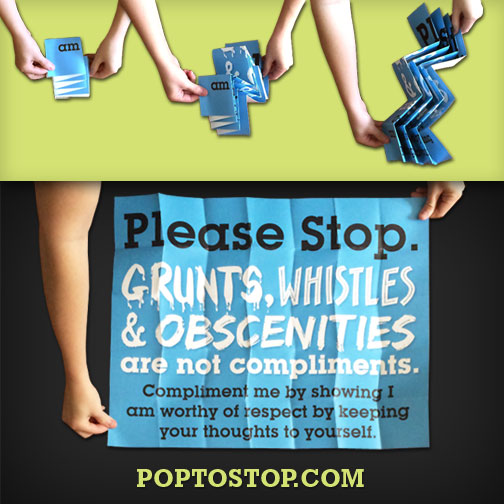
3.5 years after the idea for a street harassment hotline was hatched and six months after a plan was formed, I am thrilled to share that as of TODAY, anyone in the USA can call toll-free for support, help and advice about street harassment. The service is available 24/7, in English or Spanish.
855-897-5910
Help Spread the Word:
- Download shareable social media images and post them on your accounts. There are also images that can be posted on websites and designs that can be printed as postcards or stickers.
- Join our Thunderclap. We need at least 100 people signed up for the message to be sent out.
- If you are willing to post physical copies of the hotline information (postcards, stickers) in your community (e.g. on community message boards, in public bathrooms, on lamp posts) and/or distribute them at events or conferences, please list your mailing address and I will send you some.
More about the Hotline:
Stop Street Harassment has partnered with the Rape, Abuse & Incest National Network (RAINN) and Defend Yourself to launch the first-ever national street harassment hotline.
The phone service starts TODAY, July 19 (call: 855-897-5910), and an online (through secure IM) option will be available starting on August 10 via www.StopStreetHarassment.org.
The services both will be offered 24/7, in Spanish and English. People will be able to find emotional support, get advice for how to deal with harassers, learn what their legal rights are, and more.
Everything is in place – now we just need to spread the word so people know about it!
Many thanks to the 50+ people who donated to make it possible, to our Spanish language translation volunteers, to our graphics design volunteer, and to Defend Yourself and RAINN for partnering on this. It would not exist otherwise!!


